It’s the start of the fall semester, and campus is buzzing with fresh faces, new ideas, and a palpable sense of excitement. Students are reconnecting with their favorite organizations, adjusting to new schedules, and settling into their classes. Across campus, faculty and staff are welcoming new and returning Terps into classrooms, offices, and research labs, where they'll spend the semester exploring topics ranging from soil ecology to the history of music. For some students, however, the start of the fall semester means donning waders and boating across the Chesapeake Bay.
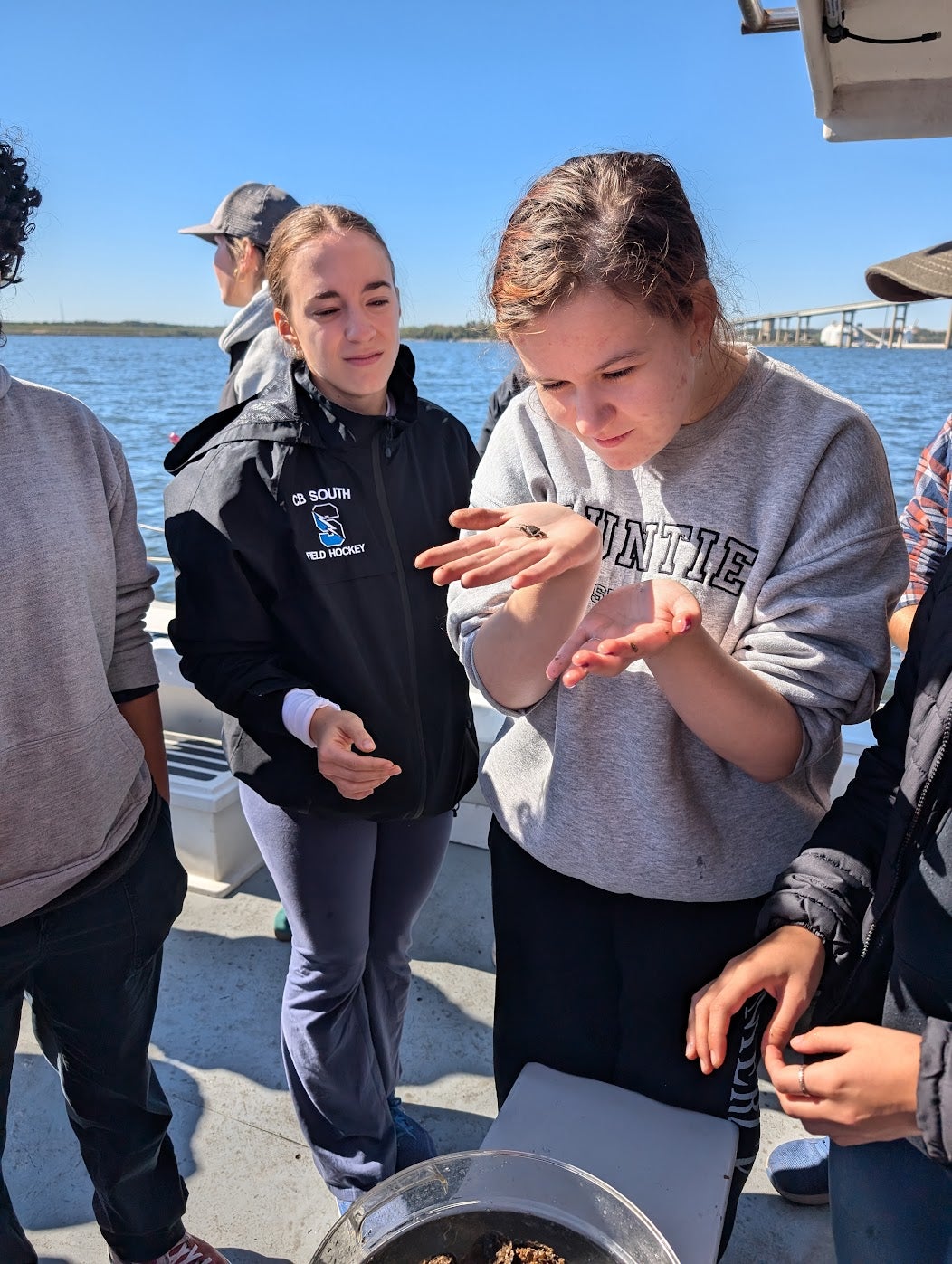
With support from the University Sustainability Fund, students in AREC 200 will explore the Chesapeake Bay watershed through a series of hands-on field trips. Students will visit Baltimore Harbor, the Anacostia River, and other locations in the Chesapeake Bay to sample water quality, seine for species, visit restored oyster reefs, and learn about the history and ecology of local restoration efforts. These field trips, part of the “Experiencing the Chesapeake Bay to Foster Connection and Stewardship” project, were funded in the 2024-2025 Sustainability Fund grant cycle, which awarded over $405,000 to various research, education, and operational projects. “Although I show pictures of the bay and its living resources and best management practices throughout lectures, getting to actually touch, see, and experience the species, sampling methods, restoration efforts, and ecosystem service benefits first hand is a really powerful experience for students,” said Dr. Epanchin-Niell, the AREC 200 instructor.
Dr. Epanchin-Niell’s project is just one of the eleven funded to bring sustainability ideas to life last year. Below are some of the other projects that received funds to make their bold ideas a reality.
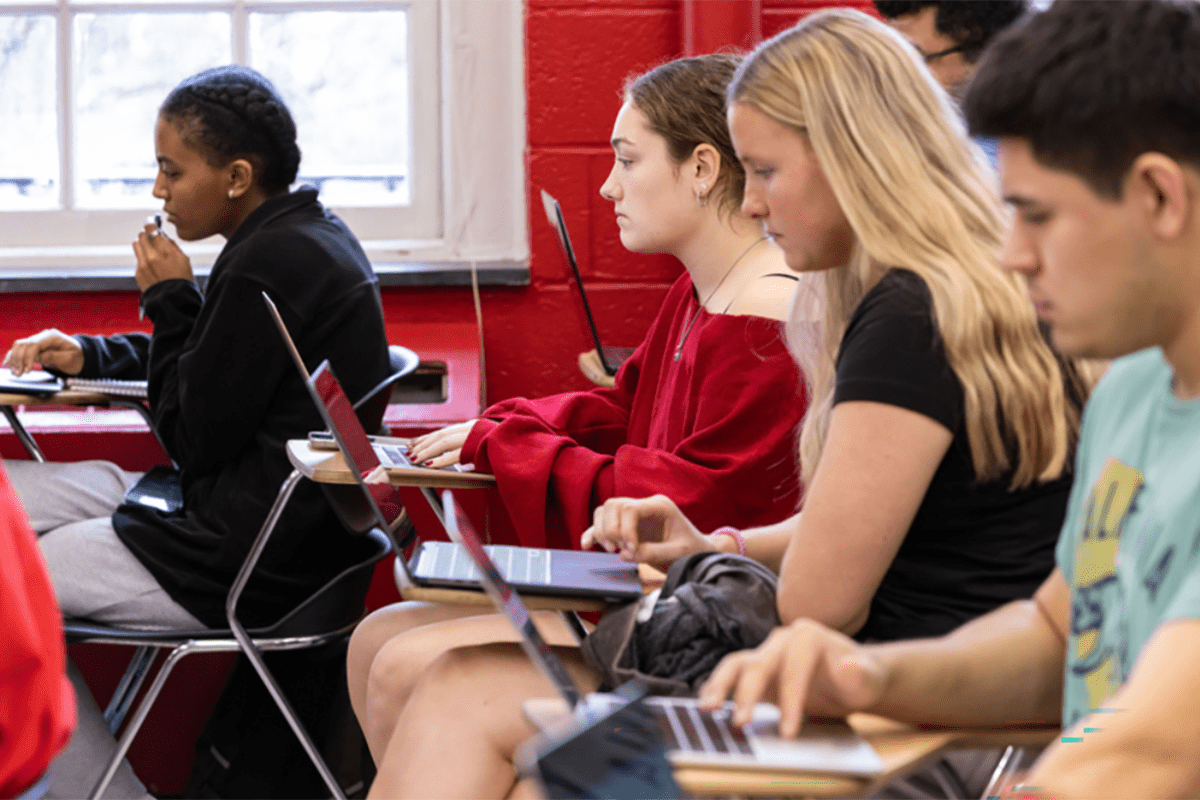
Updating the Sustainability Studies Minor Curriculum
The UMD Sustainability Studies Minor seeks to better align the Minor curriculum with new trends in the sustainability field and bolster the program’s training of future leaders. This funding will allow an undergraduate student to conduct comprehensive background research in support of potential curriculum revisions or other Minor updates.
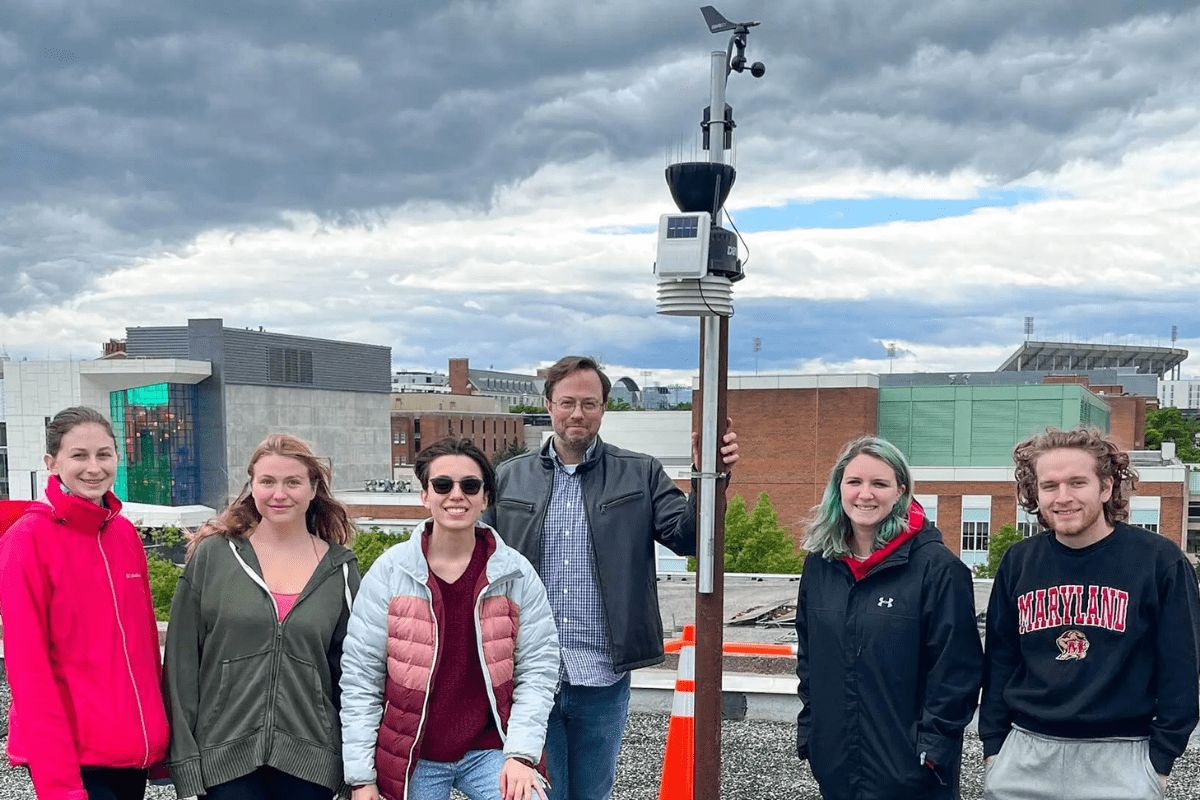
Mesoterps
UMD Mesoterps, a student-led initiative within the Department of Atmospheric and Oceanic Science, will implement sensors, weather stations, and other equipment to better record UMD’s microclimate. This hands-on experience allows students to gain valuable skills in data collection, instrumentation, and analysis and contribute to climate research efforts and emergency weather communications.
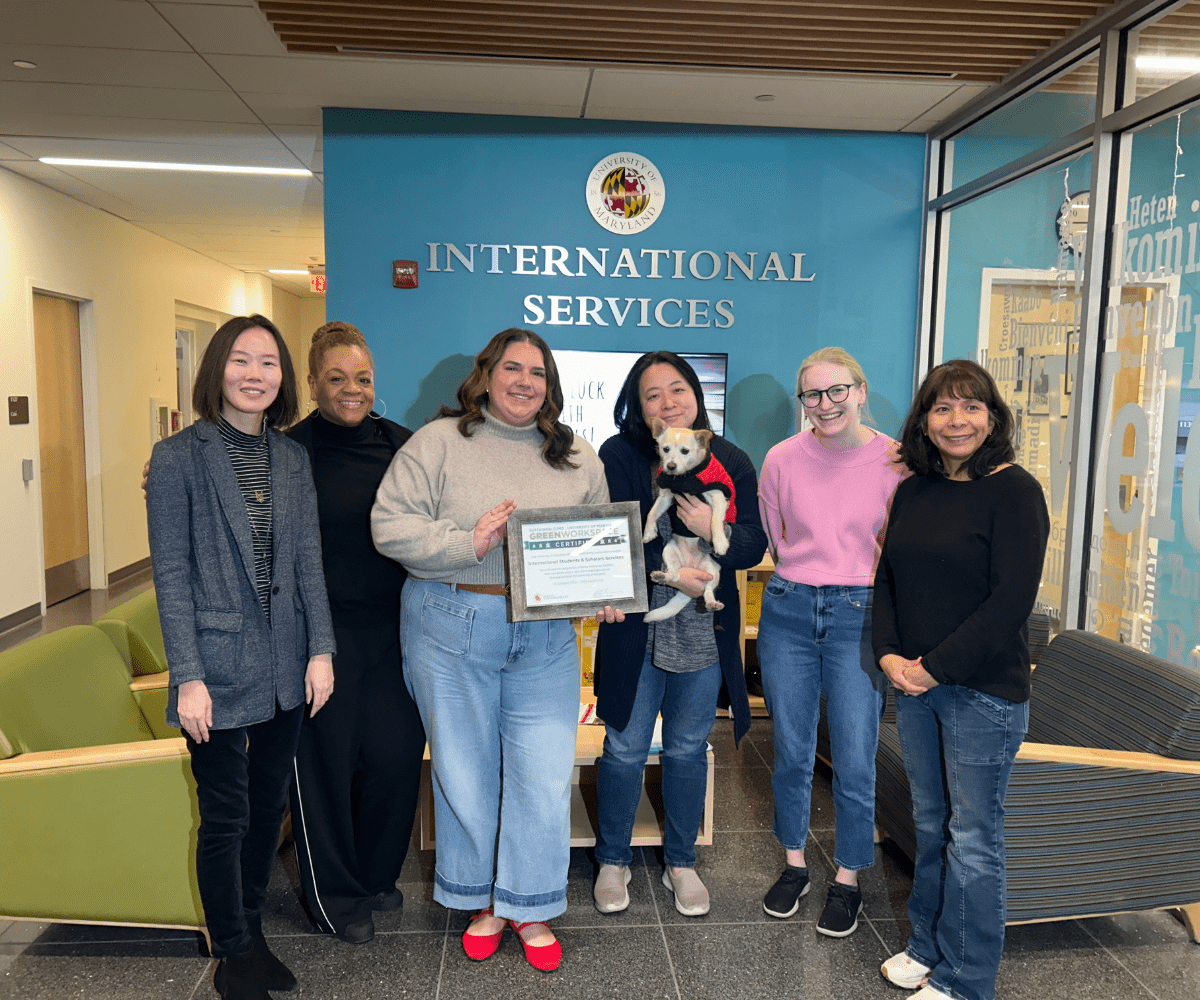
Global Terps for a Greener Future
The Office of International Students & Scholars Services (ISSS) was awarded funding to launch a co-curricular program for students to advocate for sustainable practices in the international education field. Through this program, a team of UMD students will conduct education and outreach at ISSS events to reduce waste and build community interest in sustainability; help create educational materials and training for new international students; and showcase international students’ sustainability work through annual panels and fairs.
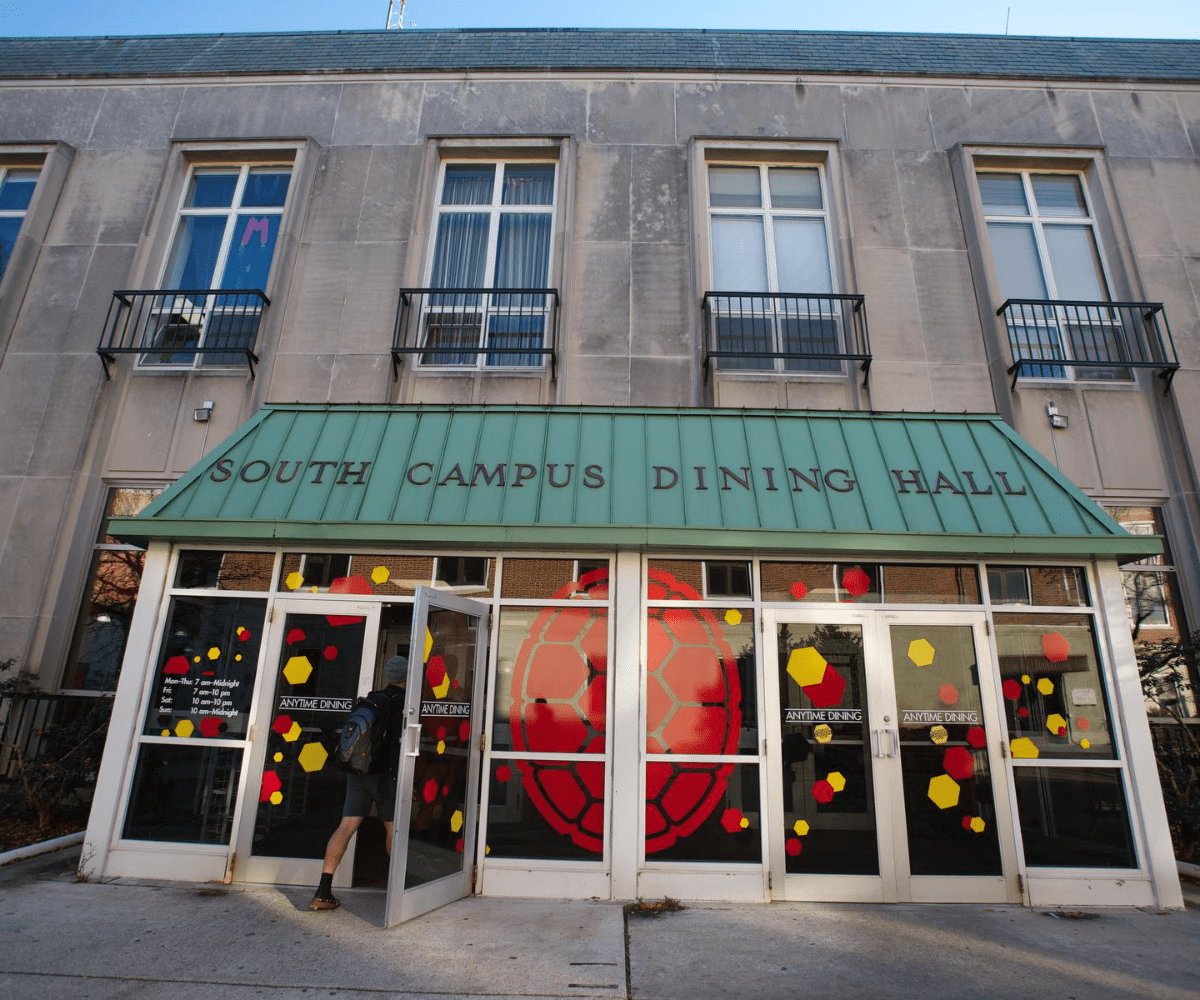
The South Campus Dining Hall Botanical Refresh Project
The Dining Services team and UMD Arboretum & Botanical Garden (ABG) staff received funding to refresh the space outside the South Campus Dining Hall by introducing native trees and a pollinator garden to empty spaces. An undergraduate student will assist in caring for the newly planted area and work to integrate the new green space into existing campus resources, such as the ABG website, digital maps, and campus tours.
About half of all projects awarded last year received multi-year funding, an exciting new addition to the Sustainability Fund bylaws. In fall of 2023, the University Sustainability Council voted to allow funding for up to three years, either as a lump sum or as annual installments over the project timeline. The increase provides additional support for projects that require more than one year to execute and for projects that are considered key elements of the campus sustainability program by the Sustainability Fund Review Committee and the University Sustainability Council.
In addition to the eleven approved projects, the Terp to Terp Campus ReUse Store also received three years of funding to maintain its operations. This will enable the storefront to continue offering free clothing and living essentials, hosting open shops, and organizing outreach events to educate the campus community about waste.
In the 2025-2026 academic year, the Sustainability Fund is celebrating another significant moment- the grant’s 15th anniversary. The Office of Sustainability will be sharing special content to celebrate this milestone and capture the impact of the nearly 200 projects that have received funding over the years. In the meantime, applications are open now with applications due by October 15th, the priority consideration deadline, and January 15th, the final deadline.
